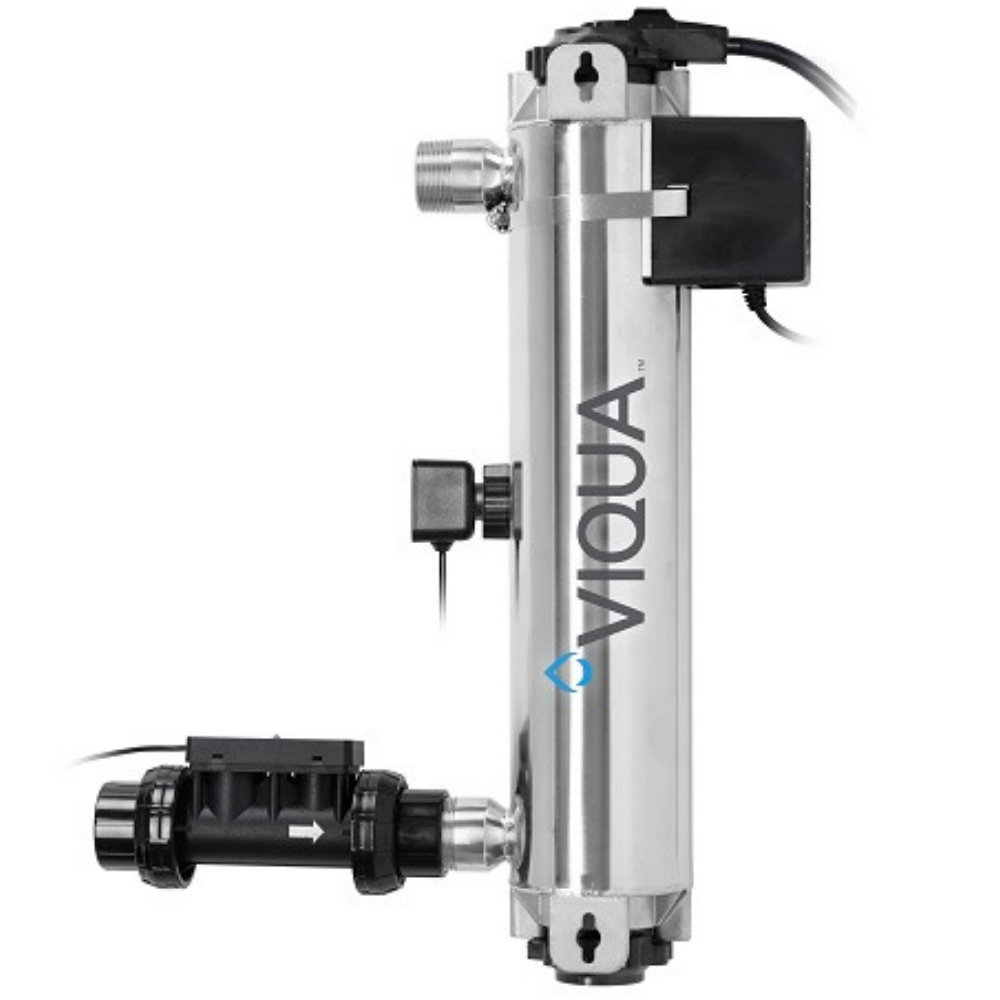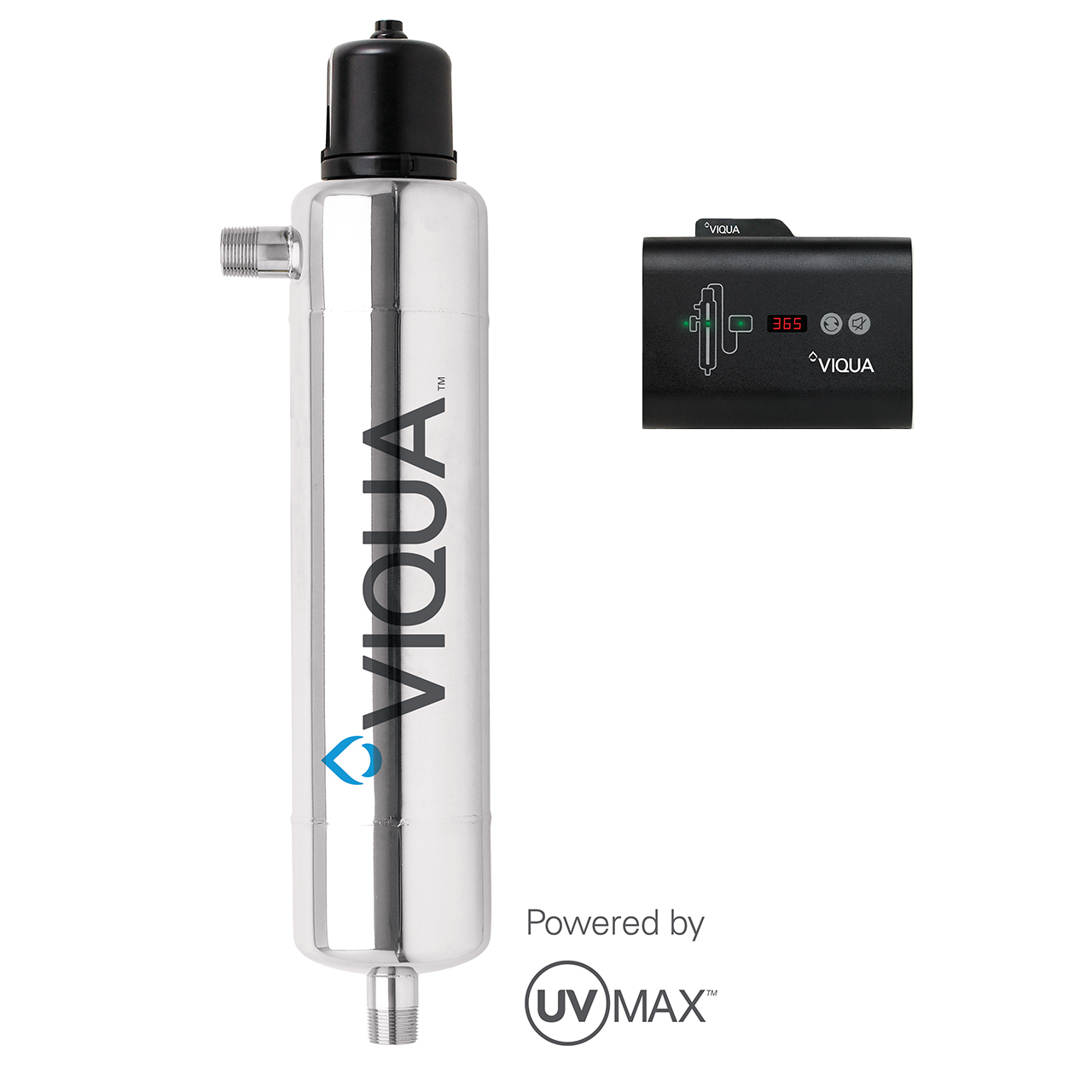What is an NSF Certified UV Water System?
With hundreds of water filter products on the market, selecting a water filter system can be overwhelming. One of the biggest selling points for water filtration systems is NSF or ANSI certification. But what is NSF certification, and does it matter?
What are NSF Standards for Water Filters?
NSF standards ensure quality and safety of products-- which is especially important when it comes to water filters and UV water disinfection systems. In fact, you can figure out specifically what a water filter does or removes by looking at the NSF label.
NSF International works to protect consumers by providing third-party testing, written standards, and validation of products available to the public.
NSF Standards for Water Treatment
Although this page is devoted to explaining NSF certification for UV water disinfection, it's important to understand that there are a number of certifications available to ensure the safety and quality performance of many water treatment options. Here are a few examples:
NSF/ANSI 42
Water filters, such as under sink reverse osmosis filters, are certified to reduce impurities that affect taste and odor.
NSF/ANSI 58
This certification is the standard for point-of-use reverse osmosis systems.
NSF/ANSI 55
This certification applies to ultraviolet water treatment systems. Class A UV sterilizers use ultraviolet light to inactivate or kill waterborne bacteria, cysts and viruses. Class B systems are certified to reduce the amount of non-disease-causing bacteria in drinking water.
What Does NSF Certification Mean?
NSF standards are widely accepted by government regulatory bodies. When a water filtration product has been NSF certified, this means it has passed through rigorous testing and met the standardized requirements.
You can look up specific water filtration products in the NSF database to see what contaminants the system is certified to protect against.
NSF.org "What You Need to Know About Finding the Best Water Filter for Your Home"
What NSF Certifications Are Important in UV Water Disinfection?
For UV water treatment, the NSF has established two certification classifications: NSF/ANSI 55 "Class A" and "Class B". These certifications validate a manufacturer's product claims.
When a UV system becomes NSF/ANSI 55 certified, it means the UV system complies with the strict standards and procedures imposed by NSF, including extensive product testing and material analyses.
UV system manufacturers (such as VIQUA), are subjected to unannounced plant inspections and regular re-testing of products to maintain the NSF certification. It is not a one-time event but an ongoing review process. NSF certification is recognized by regulators at all levels from local and state, to federal and international.
What is NSF/ANSI 55 Class A Certification?
Class A systems (40 mJ/cm2) are designed to disinfect and/or remove microorganisms, including bacteria, viruses, Cryptosporidium oocysts and Giardia cysts from contaminated water to a safe level. These systems are not intended for the treatment of water that has an obvious contamination or intentional source, such as raw sewage. Class A systems are not intended to convert wastewater to drinking water. The systems are intended to be installed on visually clear water (not colored, cloudy or turbid).
microorganisms, including bacteria, viruses, Cryptosporidium oocysts and Giardia cysts from contaminated water to a safe level. These systems are not intended for the treatment of water that has an obvious contamination or intentional source, such as raw sewage. Class A systems are not intended to convert wastewater to drinking water. The systems are intended to be installed on visually clear water (not colored, cloudy or turbid).
While both certification for Class A and B require rigorous testing, Class A systems include UV dosage and fail-safe requirements that go above and beyond those of Class B systems.
Best Selling NSF/ANSI 55 Class A UV Systems
Certified to NSF/ANSI Standard 55 Class A, the Pro10 is a Point of Entry (POE) ultraviolet sterilizer designed to treat up to 10 gpm@40mJ/cm² and features an amalgam lamp that provides higher strength as well as up to 2 years of lamp life.
The VIQUA Pro20 Monitored UV system is NSF Class A certified to treat flow rates of up to 20 GPM and is perfect for large homes (4-7 Bedrooms) and commercial use. The Pro20 ultraviolet sterilizer features an amalgam lamp that provides higher strength and up to 2 years of lamp life.
What is NSF/ANSI 55 Class B Certification?
Class B Systems (16 mJ/cm2) are designed for "supplemental" bactericidal treatment  of public or other drinking water that has been deemed acceptable for human consumption.
of public or other drinking water that has been deemed acceptable for human consumption.
Basically, Class B systems may claim to reduce non-disease-causing bacteria an nonpathogenic nuisance microorganisms in drinking water, but cannot claim to disinfect microbiologically unsafe water.
Best Selling NSF/ANSI 55 Class B UV Systems
The VIQUA D4-V+ gives you confidence in your water supply with its third-party NSF certification and added UV sensor. As an NSF Class B system, the D4-V+ will reduce normally occurring nuisance microorganisms at 8.9 GPM, while the UV sensor gives feedback on disinfection performance.
The VIQUA D4-V UV treatment system is third-party certified by the NSF to treat flow rates of up to 8.9 GPM. Common situations with this flow rate include small house (1-3 Bedroom) treatment and some light commercial applications.
What are the Similarities and Differences Between NSF Class A & Class B Certified UV Systems?
- Both Class A and Class B systems share strict requirements for safety of materials in contact with drinking water and for structural integrity of systems connected to a pressurized water supply.
- Both Class A & B must include flow restrictors to assure that the UV dosage cannot drop below that which results from testing. However, Class A systems require a higher UV dosage.
- NSF/ANSI 55 requirements specify that Class A ultraviolet systems incorporate an alarm or fail-safe element into their design. Thus, all Class A systems include sensors that provide an audible and visual indication that the system is not performing to standard.
- During the Class A certification process, system alarms must perform properly even during low-dosage conditions.
- Although Class B systems are not required to have a UV sensor, if a class B system is equipped with a sensor, then it must meet the necessary requirements.
For a complete list of NSF water treatment standards, visit NSF.org. If you have any questions about NSF testing/certifications, please call our customer support team at 877-377-9876.





